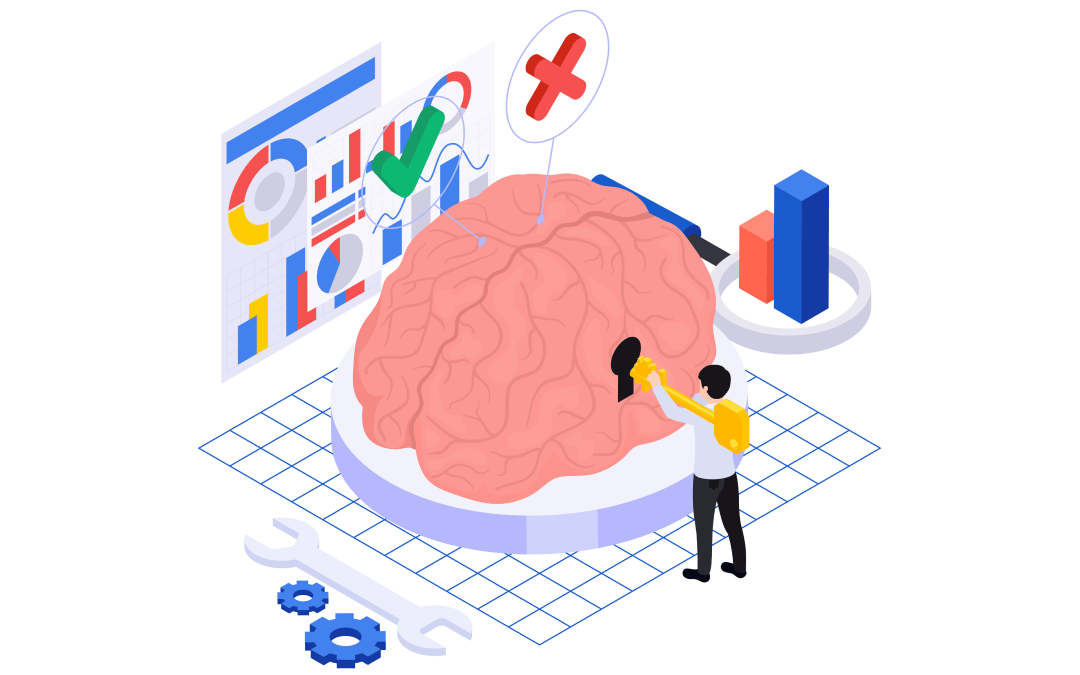What Is RankBrain and How It Affects Your SEO Strategy?
What Is Google RankBrain?
Google’s RankBrain, an AI algorithm, goes beyond keyword matching by deciphering search queries and providing relevant results. By learning from user interactions, it continually enhances its understanding of intent, ensuring a more tailored search experience.
The specifics of RankBrain’s impact on page ranking remain unclear, this blog delves into what we do know and offers insights on optimizing web pages.
How RankBrain Works?
Google’s RankBrain is an AI-driven marvel that continuously learns and adapts; it’s not your typical algorithm. Because RankBrain is dynamic, your search results from yesterday may not be the same as yours from today.
RankBrain excels in learning from data through a constant process known as “training.” This ensures it stays in sync with shifts in user search behaviour, keeping up with the ever-changing online landscape.
-
RankBrain has two primary tasks
In its role as Google’s RankBrain, this AI powerhouse deftly tackles two essential tasks: deciphering your search queries with finesse and refining search results based on your interactions.
-
Understanding search queries (keywords)
Google had trouble handling the 15% of daily queries that included keywords that had never been seen before RankBrain. By examining the context and intent of new inquiries, Google RankBrain surmounts this difficulty and is able to deliver precise results.
Measuring how people interact with the results (user satisfaction)
RankBrain tracks user activity, capturing elements such as dwell time, bounce rate, organic click-through-rate, and pogo-sticking. It makes use of these signals to evaluate the quality and relevancy of search results, which affects the ranks in the future.
RankBrain’s Impact on SEO Strategy
A key component of Google’s algorithm called RankBrain emphasizes how crucial user-centricity is to SEO (Search Engine Optimization) strategy. In the RankBrain age, content relevancy, user pleasure, and comprehension of search intent become critical components of good optimization.
- User Intent: RankBrain emphasizes understanding user intent. Create contents that aligns with user’s needs, getting a perfect answer to their queries.
- Keywords and Long-Tail Queries: Long-tail keywords are still relevant, but the focus should shift towards medium-tail keywords. RankBrain’s contextual understanding allows it to associate related terms, so optimizing for a medium-tail keyword can cover various related queries.
- Content Quality: Quality content that addresses user needs and provides valuable information is crucial. To get users’ attention, one needs to provide interesting material rather than just filling it with keywords.
- User Experience (UX): RankBrain considers user experience signals, including organic click-through-rate, dwell time, bounce rate, and pogo-sticking.
- Link Building: While backlinks remain important, RankBrain adjusts the importance of various ranking factors based on the query. A diverse and natural link profile is crucial, but other factors such as content relevance and user satisfaction also play significant roles.
Conclusion
In conclusion, adapting your SEO strategy to Google RankBrain involves understanding and aligning with its emphasis on user intent, content quality, and user experience. Ralecon, a top SEO agency in Bangalore, can assist in implementing effective strategies to optimize your website for RankBrain and enhance overall search engine visibility.

